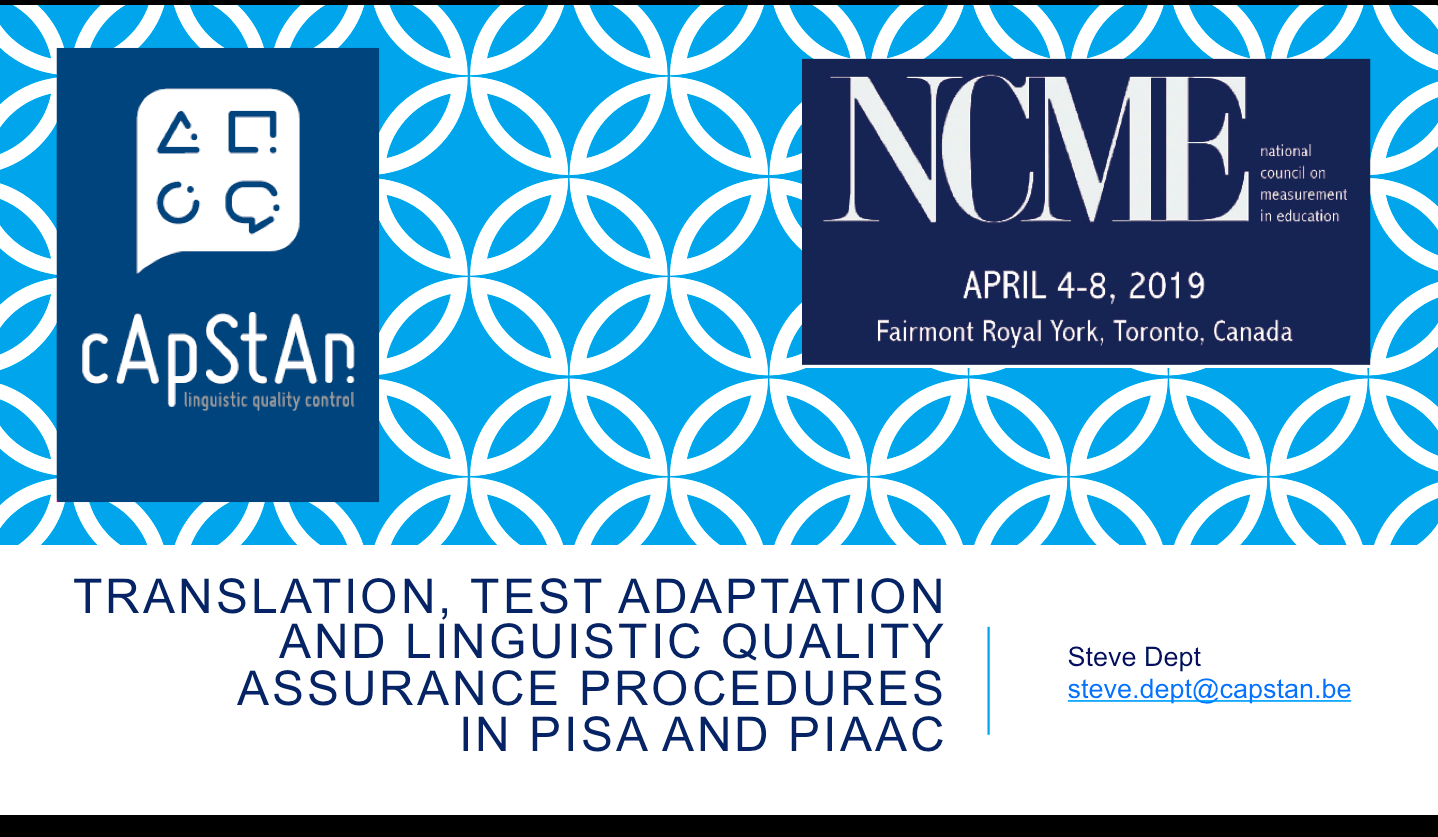
Translation, test adaptation and linguistic quality assurance procedures in International Large Scale Assessments
by Pisana Ferrari – cApStAn Ambassador to the Global Village
Translation quality is crucial in International Large Scale Assessments (ILSAs) as meaning shifts, which are language-driven, and perception shifts, which are culture-driven, can affect the psychometric properties of test items and thus compromise comparability. At the recent NCME conference in Toronto our CEO Steve Dept shared cApStAn’s two-decade experience in ensuring linguistic equivalence in ILSAs such as PISA and PIAAC. There have been very significant developments in the field since the first linguistic quality measures adopted in the 70s and, since 2000, cApStAn has made its own, modest but tangible contribution by shaping, testing and streamlining best practices in test localization. More recently, the realization that recurring translation and adaptation tissues could be prevented by crafting a more translatable source, has led cApStAn to develop their “upstream” translatability assessment: time spent optimizing the source version has proven to drive quality of translated texts and save time “downstream”. What of the future? Will there be a shift towards more upstream work? Is there a place for automation? How can we ensure access to (open source) translation technology so that all players can use the same platform? What role could searchable repositories of translation memories play?
Read more in the pdf version of Steve’s presentation below.